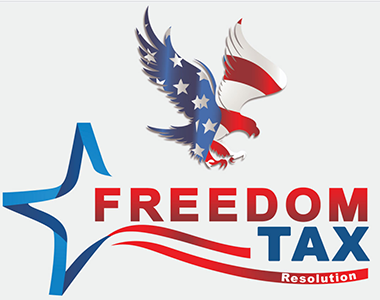Crush Back Taxes: A Self-Employed Guide to Financial Liberation
Embarking on the entrepreneurial journey as a self-employed individual is an exhilarating ride, but amidst the highs, the looming specter of back taxes can cast a shadow on your financial freedom. In this illuminating guide, we will not only demystify the complexities of back taxes but also provide you with a strategic roadmap to overcome this financial challenge and set yourself on the path to lasting success.
Section 1: Understanding Back Taxes for the Self-Employed
Definition of Back Taxes
The term “back taxes” may sound ominous, but in reality, it refers to fiscal arrears from previous filing periods. For self-employed individuals, a dynamic income stream and irregular cash flows can inadvertently lead to lapses in meeting tax obligations. Understanding this distinction is pivotal as it forms the foundation for a tailored resolution strategy.
Consequences of Ignoring Back Taxes
The repercussions of turning a blind eye to back taxes are more than just financial. The Internal Revenue Service (IRS) is not one to be trifled with—penalties, interest, and even legal actions can be on the horizon. Fines, property levies, and wage garnishments become real threats, underscoring the importance of addressing fiscal arrears promptly.
Section 2: Assessing Your Back Taxes
Gather Your Financial Information
To take charge of your back taxes, start by assembling a meticulous set of financial documents. This includes income statements, expense receipts, and any relevant financial records. By organizing this information, you set the stage for a comprehensive assessment of your tax situation, gaining clarity on the road ahead.
Calculate the Owed Amount
Quantifying the total owed amount involves more than simple arithmetic. Factor in back taxes, penalties, and accrued interest. Don’t overlook deductions or credits that might alleviate the overall liability. This meticulous approach ensures a crystal-clear understanding of your financial landscape and empowers you to plan an effective resolution strategy.
Section 3: Options for Handling Back Taxes
Negotiating with the IRS
Engaging with the IRS can seem daunting, but it is a strategic move in resolving back taxes. Open communication and a sincere commitment to rectifying the situation can open doors for negotiation. The IRS offers installment plans and, in certain cases, an offer in compromise—allowing you to settle your tax debt for less than the full amount owed.
Seeking Professional Help
The complexities of back taxes may necessitate professional guidance. Enlisting the services of a tax professional or accountant ensures that you explore all available options, maximizing your chances of a favorable resolution. These experts understand the nuances of tax law, offering tailored advice based on your unique circumstances.
Section 4: Making a Plan to Stay Current
Implementing Better Financial Practices
Resolving back taxes is not just about the past; it’s an opportunity to fortify your financial future. Develop a budget, maintain meticulous records, and make timely estimated tax payments. These practices not only keep you compliant but also contribute to the overall financial stability of your self-employed venture.
Staying Informed About Your Back Taxes
In the ever-evolving landscape of tax laws, staying informed is your best defense. Regularly update yourself on tax regulations and changes that may impact your financial obligations. Utilize accounting software or consult with a professional to stay ahead of updates, ensuring proactive compliance.
Financial Liberation Unleashed
In the intricate dance of entrepreneurship, facing the specter of back taxes as a self-employed individual is not a sign of failure but an opportunity for growth and financial resilience. As we wrap up this comprehensive guide on handling those, let’s recap the key takeaways and reinforce the significance of the journey you’re embarking on.
Reflection and Understanding
Acknowledging the existence of back taxes is the first step towards financial liberation. It’s crucial to recognize that this challenge is not a solitary struggle—many entrepreneurs face similar hurdles. Reflect on your unique circumstances, understand the nuances of your financial landscape, and realize that addressing back taxes is a proactive move towards a more secure future.
Strategic Resolution
Armed with knowledge about the consequences of ignoring back taxes, you’re now equipped to take strategic action. Whether you choose to negotiate with the IRS, explore installment plans, or seek professional guidance, remember that each option is a step forward. Embrace the resolution process as an opportunity to navigate complexities and emerge with a clearer understanding of your financial standing.
Professional Guidance
Enlisting the services of a tax professional or accountant is not a sign of weakness but a testament to your commitment to resolving back taxes effectively. These experts bring a wealth of knowledge, ensuring that you explore all available avenues. By tapping into their expertise, you’re not only streamlining the resolution process but also laying the groundwork for informed financial decisions in the future.
Fortifying Your Financial Future
The journey to resolve back taxes is not merely about settling past debts; it’s a transformative experience that fortifies your financial future. Implementing better financial practices, staying informed about tax law changes, and making proactive decisions contribute to the overall stability of your self-employed venture. View this process as an investment in your long-term success.
Resilience and Empowerment
As you navigate the intricacies of back taxes, remember that resilience is the cornerstone of entrepreneurship. Each decision you make, each step you take towards financial responsibility, contributes to your empowerment. Embrace the challenges as opportunities for growth, learning, and building a financial foundation that can withstand the tests of time.
In conclusion, handling back delinquent levies as a self-employed individual is not just a financial obligation; it’s a transformative journey that positions you for lasting success. By understanding, strategizing, seeking guidance, and fortifying your financial practices, you’re not just overcoming a hurdle—you’re sculpting a path towards a more prosperous and resilient entrepreneurial future.
Empower Your Finances
We invite you to share your insights, experiences, or questions in the comments section below. This community thrives on shared knowledge and support. If you’re ready to take the next step in addressing your back taxes, reach out to our team of tax professionals for personalized guidance. Your journey to financial liberation starts now.
Posted by Editor.


